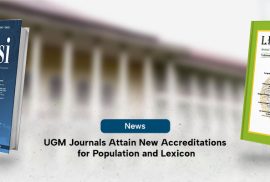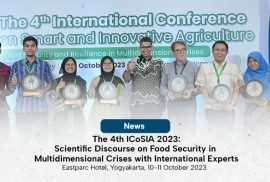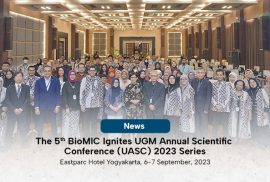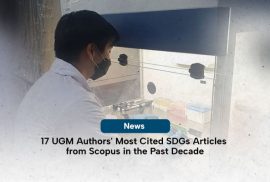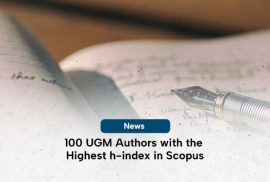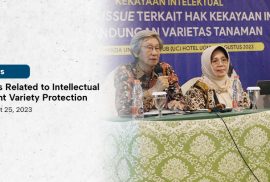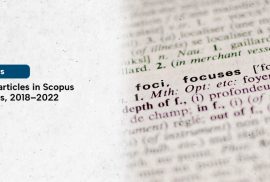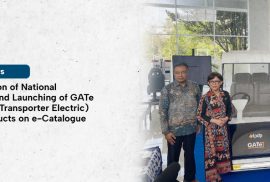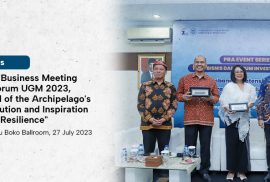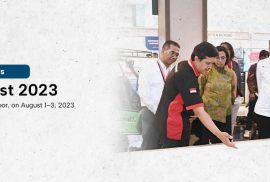The number of nationally accredited journals at UGM has increased. According to the Decree of the Director General of Higher Education, Research, and Technology of the Ministry of Education, Culture, Research, and Technology Number 152/E/KPT/2023 […].
Arsip:
Feature
The second series of UGM Annual Scientific Conference (UASC) 2023 invites experts in the field of agriculture on the 4th International Conference on Smart and Innovative Agriculture (ICoSIA 2023).
UGM Annual Scientific Conference (UASC) 2023 is commenced by the 5th Bioinformatics, Biotechnology, and Biomedical Engineering Conference (BioMIC 2023) held on 6-7 September 2023 in Grand Ballroom of Eastparc Hotel, Yogyakarta.
Image source: cnnindonesia.com Most cited UGM’s scientific articles on 17 SDGs subjects in Scopus for the past 10 years until 14 September 2023 are: No poverty, Factors Determining Social and Environmental Reporting by Indian Textile […].
Image sources: Aaron Burden on Unsplash The h-index is a metric used to assess the impact of a scientist’s research publications within their respective field of expertise.
On Friday, August 25, 2023, the Directorate of Research of Universitas Gadjah Mada (UGM) held a Focus Group Discussion on the Preparation of Intellectual Property (IP) Curriculum Supporting Modules, with the theme, “Current and […].
Image source: https://unsplash.com/photos/ywqa9IZB-dU The credibility and relevance of researchers is reflected by many indicators, one of which is the number of citations or citations as references to other research.
Universitas Gadjah Mada has received a government mandate to carry out research and development of an electric train specifically for the airport area. This vehicle is named GATe (Gadjah Mada Airport Transporter Electric).
The Directorate of Research of Universitas Gadjah Mada organized the UGM 2023 Business Meeting and Investment Forum Pre-Event Series activities on Thursday, July 27, 2023 at the Ratu Boko Palace Temple Tourism Park Ballroom.
Ir. H. Joko Widodo, President of the Republic of Indonesia, Minister of Finance of the Republic of Indonesia, Sri Mulyani Indrawati, S.E., M.Sc., Ph.D.), Minister of Education of the Republic of Indonesia Mr.

